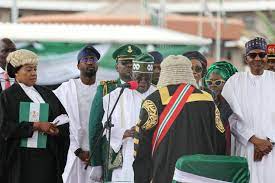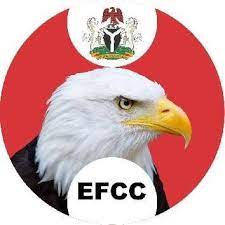By Tajudeen Atitebi
Lagos, May 30, 2023 – As President Bola Tinubu settles down in office this week after his formal inauguration on Monday, expectedly the implementation of his two economic programmes of petrol subsidy removal and reform of the foreign exchange market should be uppermost in his mind.
Already operators in the oil sector are bracing up for any shake up in the industry.
Some petrol stations and outlets in Lagos and environs have closed their gates in readiness for any surprised announcement of price changes.
In Lagos, petrol price has gone up since last weekend in anticipation of official announcement of removal of subsidy by the federal government.
Petrol subsidy and reforms of the foreign exchange market are the cardinal economic programmes in the 75-page manifesto of President Tinubu.
Tinubu brought these two issues to the fore during debates during his electioneering campaigns.
He bared it open to the electorate that as president, he would not tolerate continued payment for petroleum products subsidy a well as and the continued existence of multiple exchange rates.
Petrol subsidy was introduced in Nigeria in the 1970s in response to the crude price vagaries in 1973.
Petrol subsidy is the financial resources the federal government commits to bridging the difference between the pump price of petrol and the importation cost.
Currently, the official pump price of petrol is N184 per litre, while the depot price is N160 per litre.
The landing cost is, however, shrouded in secrecy as the Nigerian National Petroleum Corporation Limited (NNPCL) is the sole importer of petrol in Nigeria.
The federal government has been committing enormous financial resources annually to petrol subsidy payment.
According to a report of the President Mohammadu Buhari’s Economic Advisory Council, led by Bismark Rewane, the Chief Executive of Financial Derivates Company Limited, total expenditure on subsidy has been increasing yearly.
The report said that the federal government spent $5.5 billion on subsidy payment between 2015 and 2020.
The amount rose to $3.8 billion in the first quarter of 2021 alone, while total payment on subsidy for the year exceeded the $9.8 billion total budget of the 36 states of the federation.
In 2022, $6.2 billion was spent on subsidy in just the first quarter.
Also, the role of NNPCL, as the sole importer of petrol, has brought about monopolistic practices along the petrol supply chain in the country and has often caused petrol shortages across the country.
Black marketeering and wide price differentials have become the order of the day among the marketers, even in the face of the stiff price regulation by the government.
The poor management of the sector, the pervasive corrupt practices as well as general insecurity in the Niger Delta region have led to daily loss of crude oil to thieves.
The NNPCL recently reported it was losing an average of 470,000 barrels of crude oil per day to thieves which amounted to $700 million per month.
Given this scenario, experts and operators have been calling for total deregulation of the sector to bring about sanity in the system.
Successive governments have failed to muster enough political will to stop the petrol subsidy payment.
President Buhari made a feeble attempt at removing the subsidy at the start of his administration in 2019 when he increased the pump price of petrol from N145 per litre to N185 per litre, but the monster called petrol subsidy soon reared its head.
Buhari administration has prepared the ground for successful launch of the removal of petrol subsidy if President Tinubu is ready.
Buhari has secured a $800 million loan from the World Bank to provide palliatives to cushion the likely hash effects of petrol subsidy removal.
The former Minister of Finance, Zainab Ahmed, has scheduled June 2023 as the definite date for subsidy removal which Tinubu should be assiduously working toward.
Reform of the foreign exchange market is the other issue.
Nigeria, currently has about five exchange rates to the naira which has fostered corrupt practice
The vagaries of the naira exchange rates have made investment planning difficult for end users.
We have the CBN official exchange rate of the naira, there is the market fixed rate, there is the Exporter/Importer rate, there is the parallel market rates the bureax d’change operators, while the black market is operated by mallams and other street dealers.
The existence of these different rates has bred corruption in the market through arbitraging and round tripling.
Round-tripling is the practice of sourcing foreign exchange cheaply at the officially CBN rates and selling them at the lower segments where the currency is more expensive.
Corruption in the market is as old as the introduction of dual exchange rates (SFEM) in Nigeria in 1984 with the devaluation of the naira.
Although President Tinubu has promised to make mincemeat of these two problems, but timing is of essence.
Except Tinubu is having a second thought, the removal of petrol subsidy and the reform of foreign exchange market should be announced in the first week of Tinubu’s administration. (GBN)





